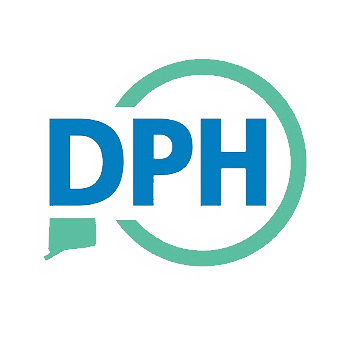Ebola Virus
Ebola is a deadly disease caused by infection with one of the Ebola viruses. There viruses are found in some African countries. Ebola outbreaks in Africa have happened sporadically since 1976. The largest outbreak of Ebola began in March 2014 with many cases reported from Guinea, Liberia, and Sierra Leone. To learn more about the outbreak, please read about the Road to Zero, the Centers for Disease Control and Prevention's response to this outbreak.
The virus is spread through person to person transmission. This happens through direct contact with body fluids like blood, saliva, and sweat from someone who is infected and has symptoms. Direct contact means that the infected fluids enter the body through the eyes, nose, mouth or an open wound. It is also possible to get Ebola when there is direct contact with something that was contaminated with infected body fluids, like a needle or syringe. In Africa, contact with bushmeat (wild animals hunted for food) and infected bats might also cause illness.
Symptoms of Ebola include fever, severe headache, fatigue, diarrhea, vomiting, muscle pain, and weakness. Symptoms appear within 2 to 21 days after exposure to the virus (average 8 to 10 days). An infected person can only spread the virus after symptoms begin. It is possible to recover from Ebola infection with good supportive clinical care and healthy immune response. After recovery, antibodies to the Ebola virus will last for 10 or more years and you will not become infected during this time.
What Has Connecticut Done to Prevent Ebola in Our State?
After the first case of Ebola in the United States was identified in Texas, Governor Malloy signed an executive order to grant authority to the Public Health Commissioner to quarantine a person or group of people who were exposed to or infected with the Ebola virus. The steps taken to identify and respond to potential Ebola cases included:
- The Department of Public Health (DPH) requested that all hospitals conduct an assessment of their readiness to detect, protect, and respond to patients infected with Ebola virus.
- Governor Malloy convened a Unified Command Team (UCT) to ensure statewide coordination in the ongoing emergency management efforts and also to provide clear communication to the public.
- The United Way's 2-1-1 telephone number was also a resource equipped to handle inquiries regarding the Ebola virus.
- The DPH monitored the health of people returning from Ebola stricken countries.
- The DPH State Laboratory acquired the ability to test for Ebola virus in clinical specimens.
Connecticut Specific Information
Information From the Centers for Disease Control and Prevention (CDC)
To contact the Epidemiology and Emerging Infections Program, please call 860-509-7994.

